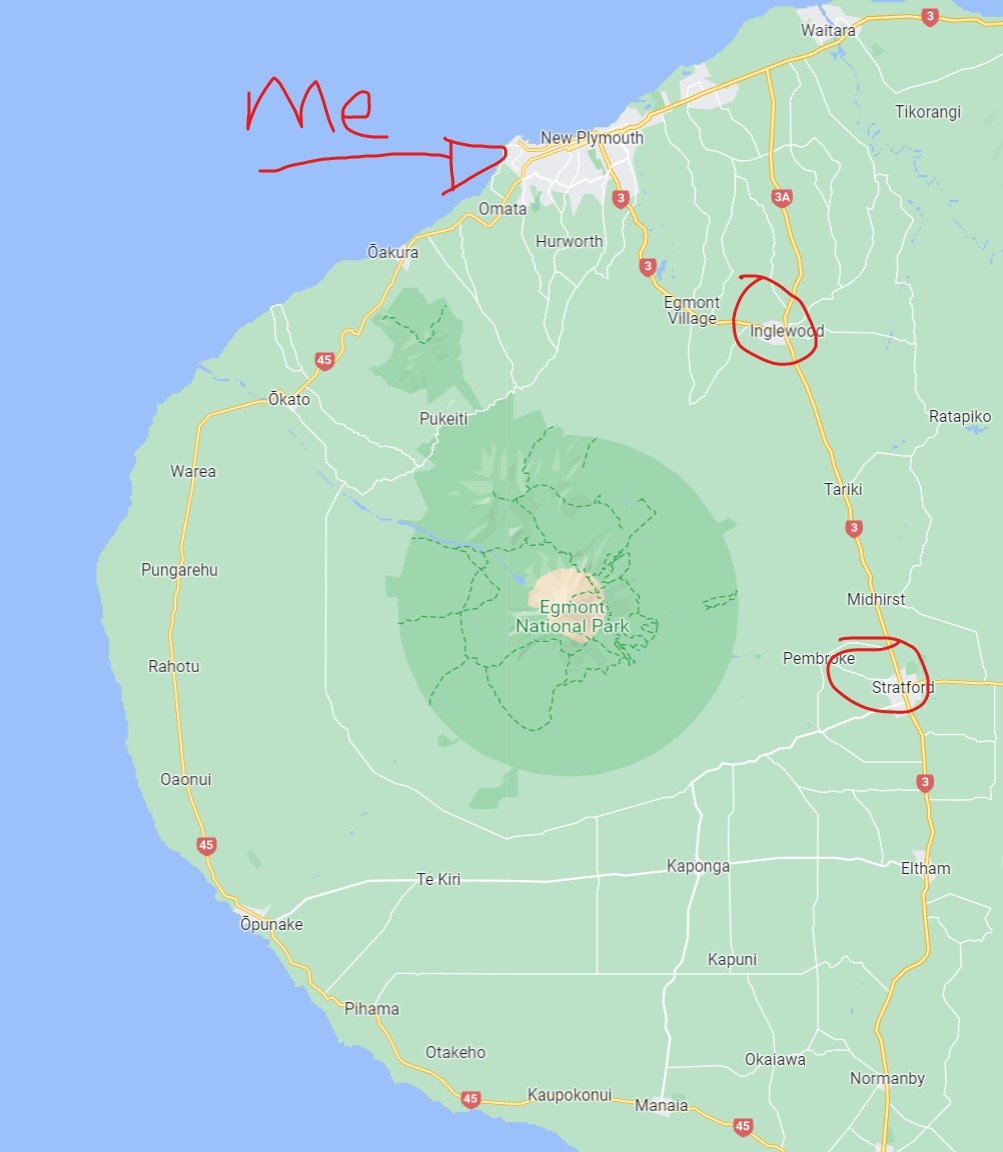Benefits that aren't connected to your product
(This originally appeared in my newsletter. Sign up now to get content like this every Monday.)
New World is the higher-end supermarket brand here in New Zealand. I heard a radio ad for their local franchise the other day.
The ad talks about New Plymouth (that's where I live) New World's selection of goods, nice experience, stuff like that. The sorts of things that a person shopping at a high-end grocery store would care about. It also talks about how big the shop is. This is important.
Then they wrap it up in their big benefit statement: "it's worth the drive."
This is brilliant. Here's why.
Hard to dislodge a shopper
To understand this ad, I need to give you some local geography. The New World franchise running the ad is right in the middle of New Plymouth - on the same block as the two other big supermarkets, Countdown and Pak'n'Save (I shop at Countdown, fyi).
If someone is shopping at one of the supermarkets next to the New World, they have made a pretty clear decision. They've decided to shop at a supermarket less than a kilometre from the New World. It's going to be pretty hard to get them to swap - they obviously know it exists.
In other words, they know the benefits of shopping there. They've just decided not to do so. Good luck convincing them otherwise! Especially once you factor in things like loyalty programmes.
But if you zoom out on a map, you'll see a whole bunch of outlying, smaller towns. Have a look:
Lots of these these smaller towns have New Worlds of their own! Inglewood has one. Stratford has one.
So for these people, it's a different sales pitch than the one you'd make to someone shopping at Countdown. Rather than "we have more high-end goods, the pitch becomes "get a bigger version of what you already have, in exchange for 30 minutes of driving."
I think this is a really smart strategy. Rather than try to sell people on the benefits of New World, they're selling existing New World shoppers on the benefits of a different New World.
Offer+audience=strategy
One of the inconvenient truths about copywriting is that the copywriting itself is really only a small portion of where the value comes from.
The real value in a piece of marketing material comes from the strategic decisions around your offer (what you're asking people to do) and your audience (who you're asking to do it).
Combine these two things, and you have your strategy - the specific direction you are taking in your marketing.
The radio ad I mentioned above is a great example of this. By changing their audience from "people shopping at other supermarkets in New Plymouth" to "people shopping at other New Worlds in other towns," they were able to fundamentally change their offer.
Now, they can target a bunch of people who already use the product they sell. Rather than explain the benefits, they just need to explain how they are a better version - then help people to overcome the barrier of a long-ish drive.
Some other examples
Lots of companies have good-fit prospects who are not using their product because of some real or perceived barrier. Rather than market the benefits of the product, it can make more sense to overcome this barrier.
Switching costs are the iconic software example. It's not uncommon for potential customers to be working with your competition not because they love it, but because it's such a pain to switch over. That's why you see companies creating tools, or partnering with consultants to help get this type of customer across the line.
It's also why you see a lot of accounting software companies running big campaigns around the start of the financial year. It's the least annoying time to switch accounting software.
Another great example is the way car dealerships lend money to (or organise a lender for - I don't actually know the details of how this works, but you get the point) people who want to buy a new car. You'll often see their very-low interest rates in ads for those cars.
Again, it's finding eliminating a barrier for best-fit customers, rather than trying to convince people of the benefits of your product.
Have a think about this in your business. What's your equivalent of people already shopping at New World in a different town? How could you market to these people?
If you can get the right offer in front of these people, it can be cheaper and easier to turn them into customers - especially when you compare to people who really aren't bought into your product in the first place.
Let me know how you get on
Sam
PS: Not much to promote. Book a home page review. $799 well spent.
If you like what you just read, you can get content like this delivered straight to your inbox at 8am every Monday. Sign up now.

